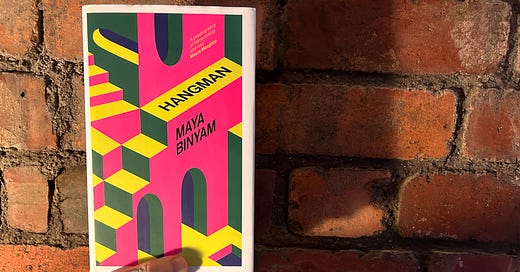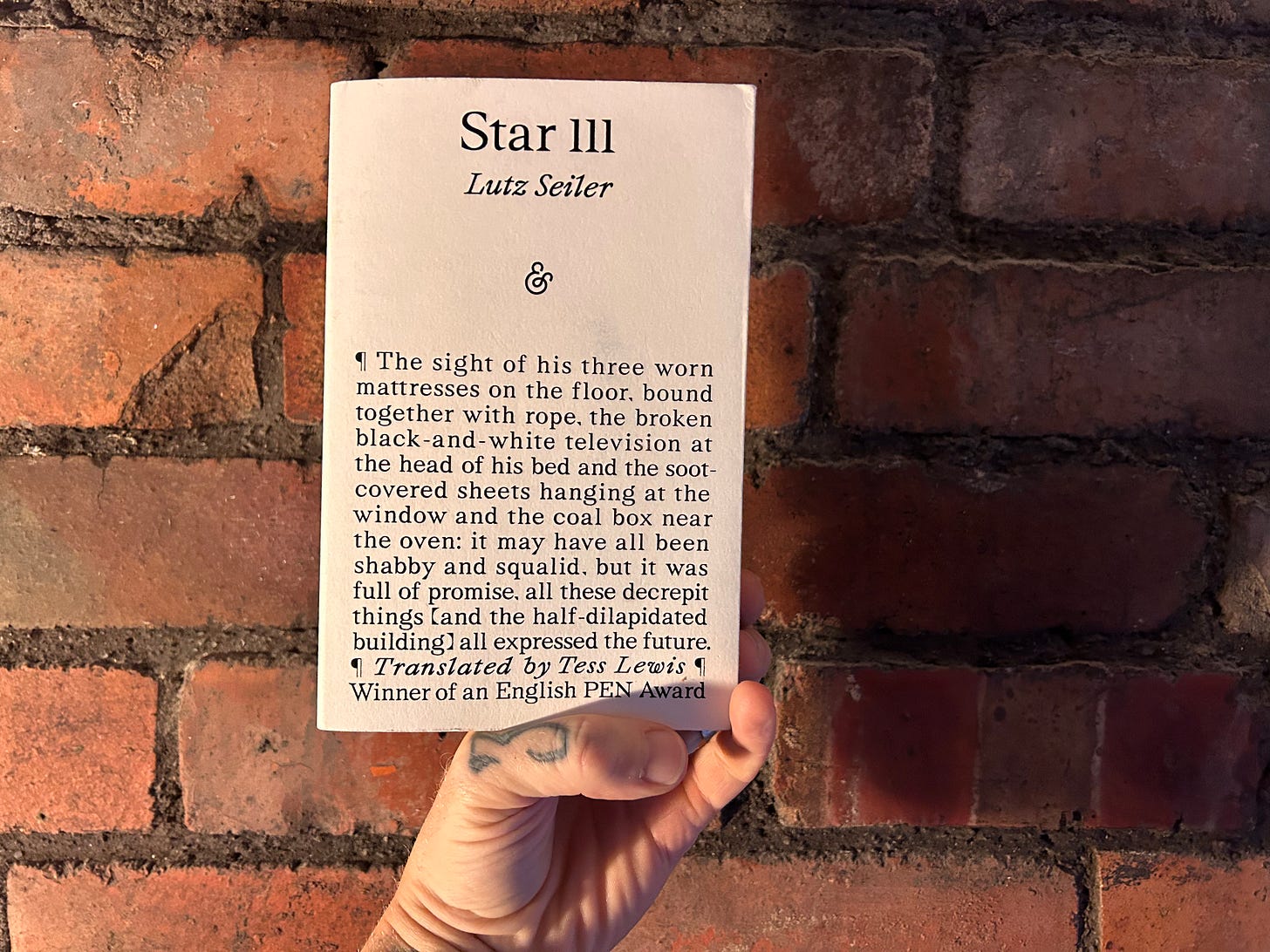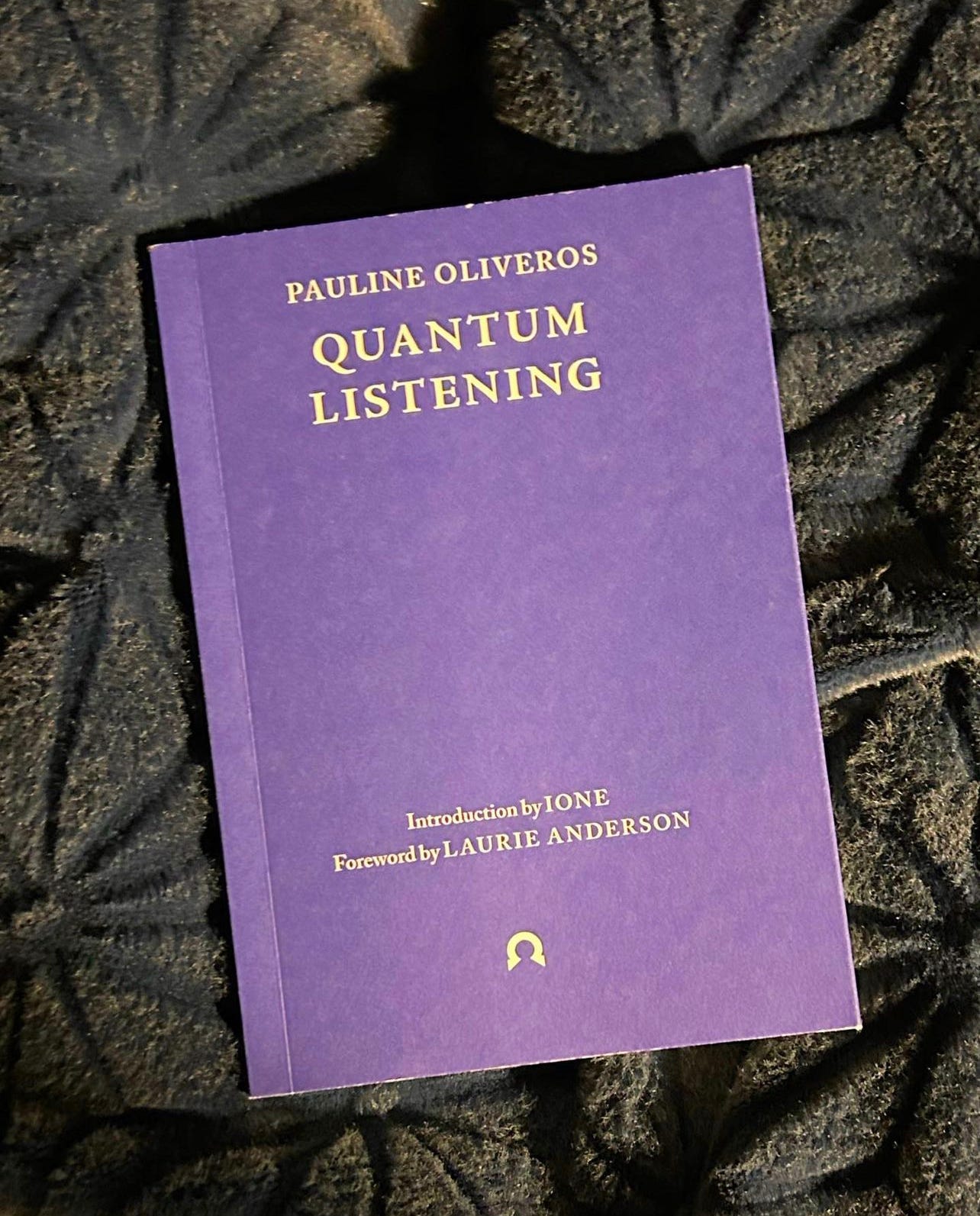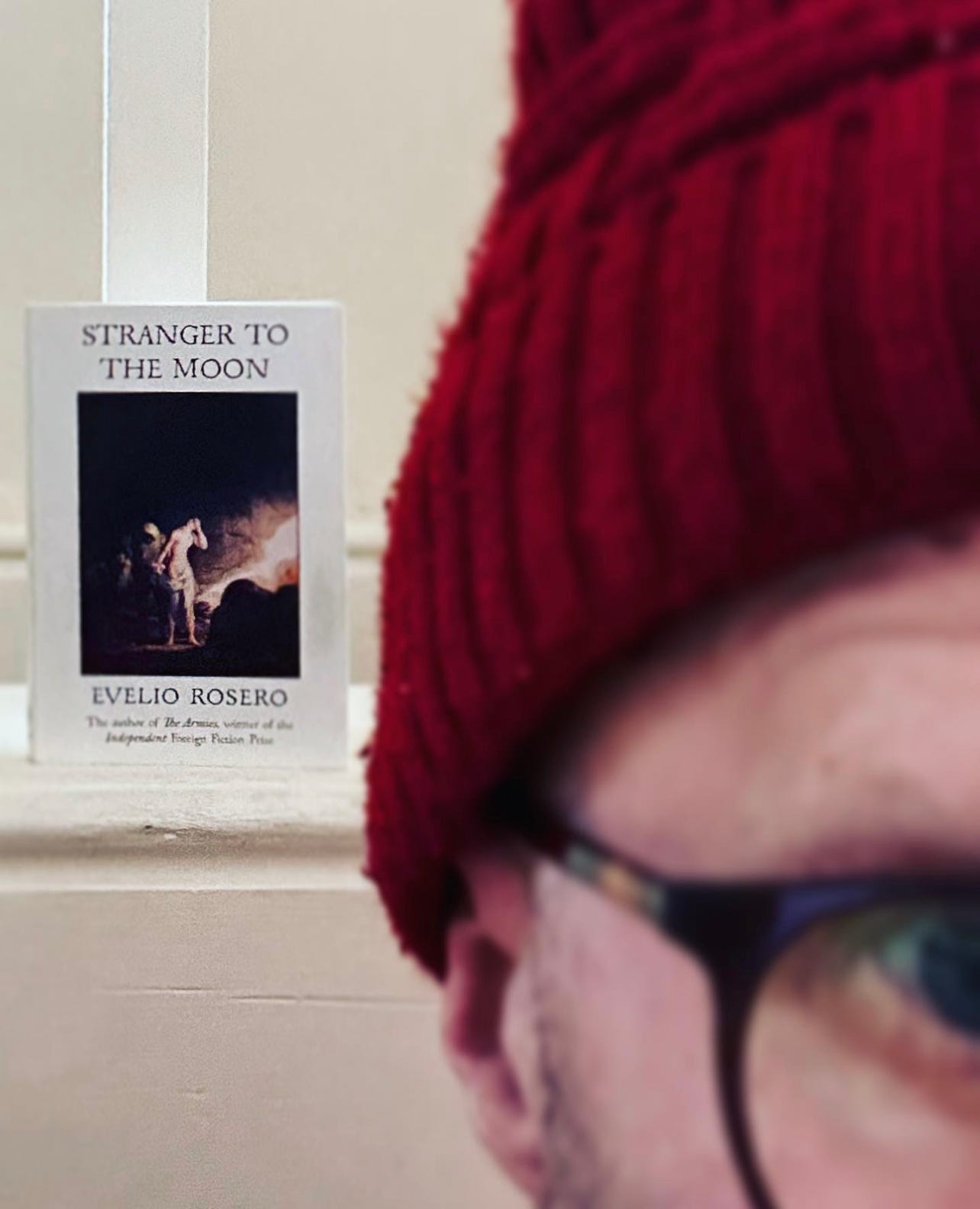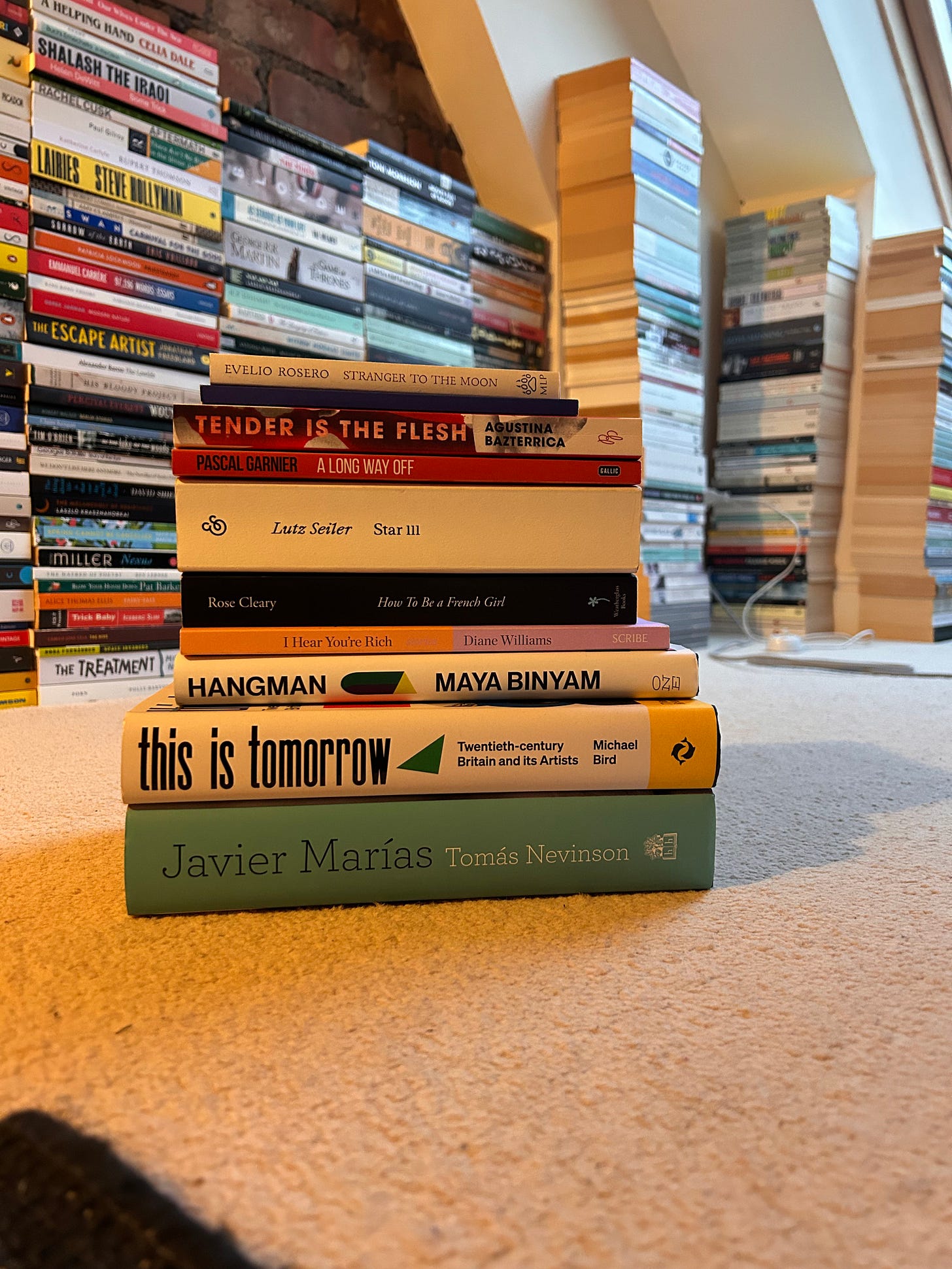I’ve been on holiday these last 2 weeks so as you have probably noticed the time to do this blog has been much more available. This update will follow on directly from the last two updates to just round off the month of September and get everything caught up right up to date. After this there will probably be radio silence again until November which is when my next, pre-christmas holiday will be.
BOOKS :
“In the morning, I received a phone call and was told to board a flight. The arrangements had been made on my behalf. I packed no clothes, because my clothes had been packed for me. A car arrived to pick me up. The radio announced traffic due to an accident involving a taxicab driver, a police officer, and a woman whose occupation the dispatcher did not specify. But there was no traffic. My ticket was in the breast pocket of my jacket, which was handed to me as I exited the passenger door. Waiting in line, I felt I had no body, but by the time I reached security, I was hungry. Inside my carry-on, I found two apples and a croissant, which tasted like nothing. The security agent asked me for my name. I gave him my driver's license, walked through the metal de-tector, and then my body went away.” - from “Hangman” by Maya Binyam. (One/Pushkin. 2023)
Startlingly strange, back-to-front funny and somehow deeply relatable, this story of disassociation, dislocation, miscommunication, misinterpretation and the goo that oozes in between the cracks of how the inner and outer worlds can really never connect together properly is an unnerving, propulsive experience from its first magnificent paragraph.
Exile, grief, transit, persecution and its endless combinations is a rich subject that in our war torn world has become fertile soil for great political, imaginative art, which is exactly what the disorienting fever dream of “Hangman” is.
This exquisite Luke Bird jacket deserves a shoutout too because it was what drew me to this brilliant book in the first place, totally, emphatically recommended.
“His eye fell on the television cabinet, on which he'd put a few books he had borrowed from Potsdamer Platz. Some were still in the plastic bag with the blue lettering: "National Library.
Carl admired the golden-yellow building that had landed on the dusty wasteland far behind the prefabricated buildings on Ebert Strasse. To reach it from the East was a struggle, like crossing a desert that was forbidding, cold and, on windy days, covered with gray dust (actually, it was windy there every day, even when the rest of the city was calm), past the container at the border crossing (no one demanded to see his passport there) and past the mound under which, rumor had it, was the bunker. The firewalls, the ruins, the columns of the maglev train- it was like crossing an abandoned test site that was off-limits, Carl thought, a rubble field in which you had to take care not to get lost. If there were ever a specific place, agreed on by both sides for the exchange of ghosts (as for the exchange of agents), then it would have been there, on Potsdamer Platz, Carl thought.” - from “Star 111” by Lutz Seiler. Translated from the German by Tess Lewis. (And Other Stories. 2023)
Set during the outlaw years in East Berlin just after the fall of communism this freewheeling almost inverted “Candide” uniquely brings to life one of the most dramatic social and political transformations of modern Europe history.
Stories about the absurdities, indignities and transgressions of that period are something of a genre all to themselves, firmly plumbed by some of the world’s greatest literary imaginations, so what could another novel say that already hasn’t been said; on this evidence a whole lot.
Not all poets make good novelists but Seiler mixes these two disciplines magnificently, movingly and enthrallingly; telling the story of one of the most interesting, individual and disarming main protagonists I’ve encountered this year, I was swept away by this torrential completely alive narrative.
One of the years best from one of our greatest independent publishers.
“The Quantum Listener listens to listening.
Quantum Listening simultaneously creates and changes what is perceived. The perceiver and the perceived co-create through the listening effect. All sounds are included in the field. This creates potential, cultivates surprises, opens the imagination and approaches and even plunges over the edges of perception into the mystery of the universe predicted by quantum field theory.” - from “Quantum Listening” by Pauline Oliveros. (Ignota. 2022)
Based on a lifetime of theory and practice this essay from 1999 is a fascinating read for anyone engaged in any creative aural activity.
Immediate, wildly intelligent, philosophical and provocative, this is the meditative process of really thinking about how we listen, broken down to a quantum level, a thing I’d until now never even really thought about, a thing that I as someone who supposedly listens more than anything else found deeply interesting.
An essential text.
“As for me, I discovered that they have only one sex, so we are superior; we have to be, though we never consider this. In any case, we must be a horrible contrast for them. A grimace on two legs, each pointing in different directions. The two legs flee in terror, splitting the centre; the grimace is amphibian - a double or deformed spirit? - and the centre, the trunk, comes apart. We are the heart of a pig inhabiting a young girl. I have two sexes, like all those who live inside this house, yet only I seem convinced of our superiority, and, what's more, I feel fear and hatred, an inescapable desire to kill, every which way, and then give in.” - from “Stranger To The Moon” by Evelio Rosero. Translated from the Spanish by Victor Meadowcroft and Ann McLean. (Mountain Leopard Press. 2021)
A titchy but deeply unpleasant stroke of Colombian baroque dystopian body horror that places the creative crown of such things even more firmly on the head of the writers of the Spanish speaking world.
If you are a fan of the sudden indescribable psychedelic gothic creeping dread of Marianne Enriquez, Yuri Herrara, Agustina Bazterrica and Amparo Dávila but with a strangely ornate speculative slant you really need to get this minuscule mutation in your consciousness.
****
“By now the flood was making fast. The mist had cleared, and to the north-east the Lots Road Power Station had discharged from its four majestic chimneys long plumes of white pearly smoke which slowly drooped and turned to dun. The lights dazzled, but on the broad face of the water there were innumerable V-shaped eddies, showing the exact position of whatever the river had not been able to hide. If the old Thames trades had still persisted, if boatmen had still made a living from taking the coins from the pockets of the drowned, then this was the hour for them to watch. Far above, masses of autumn cloud passed through the transparent violet sky.” - from “Offshore” - Penelope Fitzgerald. (4th Estate. 1979)
A writer who’s small but extraordinary literary legacy has over the last few years become one of life’s greatest reading pleasures for me, I have finally come to perhaps her most famous novel, outside of “The Bookshop.”
As always with Fitzgerald there is nothing predictable, common or narrowly observed in this very funny, humanly tragic story of a group of people living in a ramshackle collection of boats and barges on Battersea Reach (as Fitzgerald herself did) during a time of great mutual upheaval, uncertainty and unhappiness.
Beautiful in its descriptions of life just on the river, in-between two worlds but uncommitted to either, “Offshore” is also a great 60’s London novel told with Fitzgerald’s unique flair for the things never read about other than in her books.
****
“There ought to be a large hole in the world, a huge pit, in fact, after I am gone. That would tell people that I am missing, that I am not here. Know that, remember that! Fortunately, this morning, I woke up alive.” - from “Eunuch” by Kristina Carlson. Translated from the Finnish by Mikko Alapuro. (Lolli Editions. 2023)
An intimate first person portrait of an aged Chinese eunuch reflecting back on his life in the various courts of various emperors is a unique idea for a novel and this is precisely what drew me to it initially, but with its haiku like form, many unlikely truths have been placed by an author of considerable skill.
Place, gender, privilege, history, class, duty and identity are all woven through here but also a deeply observed philosophical question of what and why we are or for that matter are not, here or anywhere else.
Brief but undeniable in its resonance.
****
“Having crisscrossed Paris in every direction, been tested by its pores and innards, one is bound to be acquainted with its external aspect too, its everyday face. But you have only to push open a door, go down an alleyway, or enter a courtyard to encounter the offbeat, the fantastic: the startling sight of an old well with chain and pulley buried in ivy, a manufacturing trade you would never have thought of, or a secret passage through a building into another world of farmyards with ancient paving stones, hay lofts, carriage houses, wooden balconies with washing hung out to dry, or an odd character following his own path quite oblivious to city ways, living a full and joyful life of idleness.” - from “Paris Vagabond” - Jean-Paul Clébert. Photographs by Patrice Molinard. Translated from the French by Donald Nicholson-Smith. (NYRB. 2016. Originally published in 1952)
Comprised of the authors notes of his first hand experiences living a street level and below street level life in Paris in the years just after the Second World War, Clébert is poetic, sordid, political, inmate, raging and meditative, weaving long, tangental, magical sentences that brought to my mind not only the work of Kerouac but also, perhaps unsurprisingly Genet.
Peopled by the cast offs of society, from the drunk, to the sad, to the mentally ill, to the plain bone idle, and peppered with the glorious black and white photographs of Patrice Molinard, the impish, picaresque energy of this book is what I think will stay with me, as well and some of the more hideous deprivations described so vividly, this books is a real classic of its kind that I think all fans of “The Grass Arena” and “Cage of Shadows” would do well to get involved with.
****
“He was buying the evening paper when he saw himself walk by with a blonde woman. He froze, perplexed. The man was himself, no doubt about it. Not a twin or a look-alike-it was he who had passed by, wearing the English cashmere suit and striped tie his wife had given him for Christmas.” - from “The Houseguest” by Amparo Dávila. Translated from the Spanish by Audrey Harris & Matthew Gleeson. (New Directions. 2018)
I’m not usually a big fan of the Poe/Lovecraft style of story writing, I find it to be too indirect, too much fuff and ultimately not that unsettling, but in the hands of Spanish speaking writers like Marianne Enriquez, Carmen Maria Machado, Isobel Solá and now Amparo Dávila dark tales of unresolved uncertainty, baroque macabre and urbane strange hit me the way they should.
Dávilia has been working for many years in relative obscurity, little read outside of her native Mexico, but thankfully due to the groundswell of interest amongst deep readers for Latin American and Spanish literature we are seeing more and more great writing beautifully translated and meaningfully published.
Top drawer material for all fans of that unutterable uncanny, uniquely, forcefully, unavoidably expressed.
****
“I adopted a neutral, objective kind of writing, 'flat' in the sense that it contained neither metaphors nor signs of emotion. The violence was no longer displayed; it came from the facts themselves and not the writing. Finding the words that contain both reality and the sensation provided by reality would become, and remain to this day, my ongoing concern in writing, no matter what the subject.”
“This commitment through which I pledge myself in writing is supported by the be-lief, which has become a certainty, that a book can contribute to change in private life, help to shatter the loneliness of experiences endured and repressed, and enable beings to reimagine themselves. When the unspeakable is brought to light, it is political.”
“That an individual victory could erase centuries of domination and poverty, an illusion that school had already fostered in me by dint of my academic success. How could my personal achievement have redeemed any of the humiliations and offences suffered? That's not a question I ever asked myself. I had a few excuses.”
- from “I Will Write to Avenge My People : The Nobel Lecture” by Annie Ernaux. Translated from the French by Alison L. Strayer & Sophie Lewis. (Fitzcarraldo Editions. 2023)
****
“Because life rarely has its rewards and punishments; usually sacrifices have no reward, and often evil deeds go unpunished, at times they are even richly rewarded with success and money. Therefore it is best that our children should know from infancy that good is not rewarded and that evil goes unpunished; yet they must love good and hate evil, and it is not possible to give any logical explanation for this.”
“As far as the things we write are concerned there is a danger in grief just as there is a danger in happiness. Because poetic beauty is a mixture of ruthlessness, pride, irony, physical tenderness, of imagination and memory, of clarity and obscurity - and if we cannot gather all these things together we are left with something meagre, unreliable and hardly alive.”
“He tells me I have no curiosity, but this is not true. I am curious about a few, a very few, things. And when I have got to know them I retain scattered impressions of them, or the cadence of phrase, or a word. But my world, in which these completely unrelated (unless in some secret fashion unbeknown to me) impressions and cadences rise to the surface, is a sad, barren place. His world, on the other hand, is green and populous and richly cultivated; it is a fertile, well-watered countryside in which woods, meadows, orchards and villages flourish.” - from “The Little Virtues” by Natalia Ginzburg. Translated from the Italian by Dick Davis. (Daunt Books. 2018)
A writer of staggering insight and power in her fiction is unsurprisingly just as acute and razor sharp in her essay writing; an extraordinary, luminous, more than occasionally revelatory book from one of THE major literary rediscoveries of recent years.
MUSIC :
Since my last music update I managed to catch up on a load of older joints that I’d not really spent time with and also there have been some solid new releases too that were cause for much joy around here when they emerged.
Big highlights jazz/funk/soul/hip-hop wise have been the rediscovery of Chaka Kahn’s incredible 80’s period with a heavy lean towards her album “What Cha’ Gonna Do For Me”. Finally getting my mitts on the newish Blue Note reissue of Cecil Taylor’s extraordinary “Unit Structures” has also been something I have been striving towards for a fair while. I also rounded off my Kaildi Tatham discography by getting the reissue of his groundbreaking debut album “In Search Of Hope".
While travelling during my first week off I thoroughly enjoyed listening to all of those brilliant Run The Jewels joints. I was a HUGE fan but they had dropped off my more regular rotation so it’s been great to hear those ridiculous albums again. Carrying on that underground hip-hop thing I broke out the 2 “Soundbombing” and “Lyricist Lounge” compilations for the first time in waaaaaay too long.
As always house and electronic music has been featuring heavily for me. New ambient, electro-acoustic and drone releases from Laurel Halo, Sarah Davachi, Phew, Beatriz Ferrerya and Hiroyuki Onogawa have all been atmospheric peaks. On a more IDM tip Jlin’s new EP is INCREDIBLE as is the surprisingly rock “Again” from hypnagogic pop maestro Oneohtrix Point Never.
Veering towards the dance floor Chicago deep house gods Ron Trent, Chez Daimer and of course Larry Heard/Mr. Fingers have all been firmly on deck, as have been the more aggressive flavours of Detroit’s ghetto-tech nutter Full Body Du Rag.
Its been pretty good for new and older mix cd’s too as many of my favourite clubs rev up for their Autumn programming. The two biggest and best being Helena Hauff’s riotous blend for London’s night life institution Fabric and I also got James Lavelle’s very first Fabriclive mix on for the first time in years and enjoyed it immensely. Looming large on the horizon is Danny Tenaglia’s new “Brooklyn” mix for progressive house mainstays Global Underground. Tenaglia is by far one of my favourite characters and DJs so his recent cancer diagnosis and recovery process has been very much on my mind this summer while he’s been laying the groundwork for this upcoming album. He’s such a positive force and I really hope he makes a complete recovery. Seeing him hopefully tour again next year will be a huge cultural highlight for me.
Anyways, here’s the list of what I have been listening to since the last newsletter, as ever there are Spotify playlist links for anyone who’s interested :
Prescription : Word, Sound & Power - Ron Trent. (Rush Hour. 2017)
RTJ 1/2/3/4 - Run The Jewels. (Jewel Runners. 2013/2014/2016/2020)
Fabriclive 1 : James Lavelle / Fabric 33 : Ralph Lawson. (Fabric Records. 2001/2008)
Fabric Presents : Helena Hauff. (Fabric Records. 2023)
What Cha’ Gonna Do For Me - Chaka Khan. (Warner Brothers. 1981)
Get Rich or Die Tryin’ / The Massacre - 50 Cent. (Shady / Aftermath. 2003/2005)
Beg For Mercy - G-Unit. (G-Unit / Interscope. 2003)
Atlas - Laurel Halo. (Awe. 2023)
Unit Structures - Cecil Taylor. (Blue Note. 1966)
Hello - Fullbodydurag. (FXHE. 2023)
Loves Arrival - Larry Heard. (Alleviated. 2001)
August In The Water: Music For Film 1995-2005 - Hiroyuki Onogawa. (Mana. 2023)
Senderos De Luz Y Sombras - Beatriz Ferrerya. (Recollection GRM/Editions Mego. 2023)
Pergamon - Pohl. (Flexible Skulls. 2023)
Lyricist Lounge 1 & 2 - Various Artists. (Rawkus. 2002)
Soundbombing 1 & 2 - Various Artists. (Rawkus. 1997/1999)
Selected Works I & II - Sarah Davachi. (Late Music/Disciples. 2023)
Vertigo KO - Phew. (Disciples. 2020)
Perspective - Jlin. (Planet Mu. 2023)
Again - Oneohtrix Point Never. (Warp. 2023)
As ever, thanks for listening, reading. Hopefully I’ll see you again in November.
Eddie.
